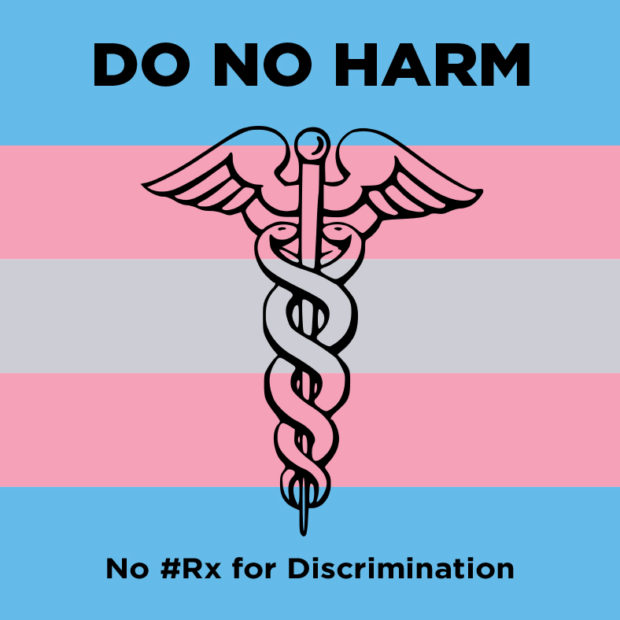
Wednesday night, Politico broke the news that the Trump-Pence administration is launching another attack on trans and allied communities in the form of a grotesque new Health and Human Services (HHS) division. Sure enough, this morning the HHS Office of Civil Rights announced the formation of a so-called “Conscience and Religious Freedom Division.” Its stated aim is to allow healthcare providers – even those who take public money and administer federal programs – to refuse to treat patients or provide services based on religious and moral beliefs. In a world where transgender people, people living with HIV, people seeking reproductive health services, and others already face immense barriers to care, this sweeping license to discriminate would be devastating, and doubly so in areas where options are already limited.
We know from the 2015 US Trans Survey that the landscape we face is already bleak. Trans people – especially trans people of color – are more likely than cis people to lack coverage and be denied care on the insurance side, and fully one-third of respondents reported having had a negative experience with a provider in the previous year. Nearly a quarter had avoided seeking health care they needed due to fear of being mistreated, and a 2017 Center for American Progress survey revealed that 41% of LGBTQ people outside of large metropolitan areas said it would be “very difficult” or “not possible” to find another place to go if a hospital denied them service. For transgender people living with HIV, recent Positively Trans studies found that 41% had gone six months or longer without medical care, in large part due to anticipated discrimination. These fears are firmly grounded in experience: 31% reported being refused treatment for being trans or gender non-conforming, and 21% reported being refused treatment because they were living with HIV. These dire statistics illustrate a precarious situation that additional bias encouraged by the government will only exacerbate.
To further set the stage, the new division perversely falls under HHS’s Office for Civil Rights (OCR), the wing of HHS ostensibly responsible for overseeing nondiscrimination protections. According to OCR Director Severino, “no one should be forced to choose between helping sick people and living by one’s deepest moral or religious convictions.” TLC is deeply troubled by a framework that explicitly sets moral convictions in opposition to helping the sick, especially coming from someone at the head of the Office for Civil Rights. This isn’t even the first time the administration has mutated a civil rights office into an unrecognizable mirror image of itself: last August, the Department of Justice announced that its Civil Rights Division would be targeting university affirmative action policies. Moves like these signal a deep antipathy to the concept of fair and equal access to foundational civil rights for all.
The Trump-Pence administration has also been tampering with healthcare since inauguration. After the failed Republican Affordable Care Act (ACA) repeal efforts last year, and with 3.2 million fewer people on health insurance rolls compared to a year ago, it’s abundantly clear that the administration doesn’t prioritize healthcare as a policy goal in general. But poor and marginalized communities are at the greatest risk of losing access as lurch from stunt to stunt, a dangerous reality coming into ever sharper focus as regressive policies take shape one after another.
However, no matter how fervent and blatant their animus, one thing that HHS can’t do is change the law: federal law, including the ACA through its prohibition against discrimination in healthcare on the basis of sex, makes it illegal to discriminate against transgender people. Courts have consistently sided with us on these and similar issues, including with the Seventh Circuit’s decision in TLC’s Whitaker case last year. If you believe that a healthcare provider has turned you away or denied you service because you’re transgender or gender non-conforming, contact our legal helpline.
This post, by TLC Policy Coordinator Corinne Green, is part of our Policy Desk series.
